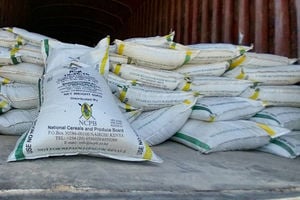We do not need this opaque deal to print our notes

Kenyan currency notes. Executives of the UK bank note printer, De La Rue, will be visiting Kenya this week to sign and conclude the joint venture deal under which the country is to pay Sh750 million for a 40 per cent stake in the company’s local subsidiary. PHOTO | DIANA NGILA | NATION MEDIA GROUP
What you need to know:
- We are witnessing a rare occasion where the Cabinet moves to countermand its earlier decision for reasons that do not make any sense.
- When the transaction documents were first scrutinised by Parliament in 2012, the Public Accounts Committee recommended that the joint venture deal with De La Rue be cancelled.
- De La Rue made a tactical retreat by appearing to drop the idea of the joint venture deal that ties the hands of the Central Bank into giving it exclusive contracts.
- If we are to sign a joint venture deal with De La Rue, let us make it clear in every document we sign that we will be procuring bank notes competitively and in accordance with our laws and regulations.
I gather that top executives of the UK bank note printer, De La Rue, will be visiting the country this week to sign and conclude the joint venture deal under which we are to pay Sh750 million for a 40 per cent stake in the company’s local subsidiary.
From what I gather, the transaction documents are being kept away from Parliament to pre-empt scrutiny and interrogation for public interest. Apparently, the Cabinet had in a meeting on July 28, specifically directed that Parliament be shut out from seeing the transaction documents on this deal.
It is an about-turn because the directive to have the transaction documents on this deal tabled in Parliament originated from a previous meeting of the Cabinet.
We are witnessing a rare occasion where the Cabinet moves to countermand its earlier decision for reasons that do not make any sense.
What are they hiding from Parliament? I think that powerful individuals supporting this transaction have calculated that taking the documents back to Parliament was just too risky.
We must not forget that when the transaction documents were first scrutinised by Parliament in 2012, the Public Accounts Committee recommended that the joint venture deal with De La Rue be cancelled.
While it is true that the recommendations of the PAC were later rejected on the floor of the House, rendering them null and void, it is an open secret that the PAC only lost this battle because of cash-for-questions-type canvassing and unethical lobbying, which our National Assembly is becoming more and more infamous for.
JOINT VENTURE DEAL
In Cabinet documents, it is explained that Parliament has been circumvented because “the government had effectively responded to all issues raised by the National Assembly”.
If that is the case, why is Parliament itself not being allowed to say that its concerns have been answered?
The reason the joint venture deal with De La Rue has been controversial is because it was clear that it was just a clever strategy by the multinational to tie the hands of the Central Bank of Kenya into giving it contracts without competitive bidding. The impact of the deal will be to deny us the chance of buying bank notes at cheaper and competitive rates.
De La Rue made a tactical retreat by appearing to drop the idea of the joint venture deal that ties the hands of the Central Bank into giving it exclusive contracts.
However, following the July 28 Cabinet decision, and with Parliament out of the way, I do not see anything stopping the multinational from sneaking the idea of exclusive contracts through the backdoor in the multiple transaction documents we are supposed to be signing with them this week. Included in a draft of a shareholders agreement is a clause that seeks to tie the government’s hands into giving the company exclusive contracts.
If we are to sign a joint venture deal with De La Rue, let us make it clear in every document we sign that we will be procuring bank notes competitively and in accordance with our laws and regulations. We do not need this joint venture.
STRATEGIC DECISION
In the first place, we went into this negotiations without conducting proper due diligence. I do not know whether the government has closely studied the due diligence report it commissioned on the local subsidiary of De La Rue and which was conducted by the investment banking affiliate of Commercial Bank of Africa, Capital, dabbed “Project Kifaru”.
If it did, it would have found out that it was going into a marriage with an entity operating with very opaque business models.
The report by CBA Capital portrays a business model characterised by significant intra-group sales, intra-group purchases, and loans by the subsidiary to the London head office — in arrangements that leave wide loopholes for practices such as transfer pricing, profit shifting — even capital flight.
Although the investment bankers recommended that the government move ahead to acquire the company, the Project Kifaru documents have insights that should have warned the government against going into the union.
There is enough evidence from our own history and experience that joint ventures are no more than tools that multinationals employ, not only to extract privileges and guarantees from the State, but also to shield themselves from competition.
An argument has been made that the joint venture is a strategic decision to allow the government to have a say in the printing of the country’s currency.
If that is so, why not just buy majority shareholding in the company? Have we forgotten that De La Rue at one point indicated that it was going to close down its factory in Kenya?





